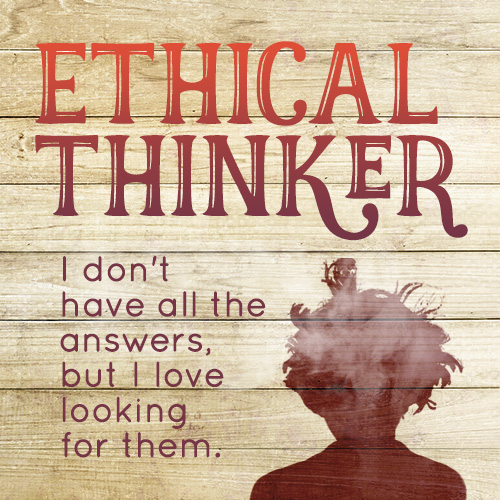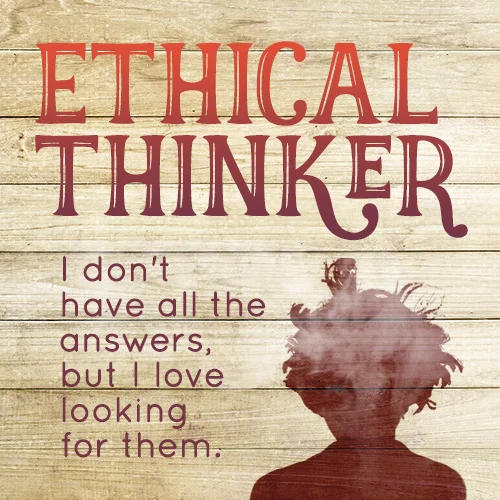Social media and gaming companies: Stop making kids lie about their age
/As I write, I'm listening to an episode of CBC The Current on the dangers that anonymous apps pose to children and teens. While Kik (the app they are discussing) hasn't come up in our home yet, the discussion is related to a lot of conversations that we do have in our home.
My kids are technologically savvy and they have parents who are very connected on all kinds of social media. My kids are eight and eleven years old.
Can I have an instagram account, mom?
No. My answer is no. At the moment, instagram, facebook, YouTube, twitter, Pinterest and just about every other social network out there have age restrictions. So do a lot of gaming sites and apps, even ones that are obviously appropriate for and targeted at a tween aged crowd. "You must be at least 13 years old to use the Service," says Instagram. "You will not use Facebook if you are under 13," says Facebook. Youtube goes a bit further (and wordier):
You affirm that you are either more than 18 years of age, or an emancipated minor, or possess legal parental or guardian consent, and are fully able and competent to enter into the terms, conditions, obligations, affirmations, representations, and warranties set forth in these Terms of Service, and to abide by and comply with these Terms of Service. In any case, you affirm that you are over the age of 13, as the Service is not intended for children under 13. If you are under 13 years of age, then please do not use the Service. There are lots of other great web sites for you. Talk to your parents about what sites are appropriate for you.
Wait -- YouTube is not for children under 13? Exactly who are those Kinder Surprise Egg unboxing videos targeted at then? What about the Kids CBC, Disney Junior, and other corporate accounts targeted at kids?
So why the age 13 restriction? Why don't these social media sites trust parents to make decisions about what is okay for their children? There is a very simple answer to that question. The Children's Online Privacy Protection Act (COPPA) in the United States says:
If you run a website designed for kids or have a website geared to a general audience but collect information from someone you know is under 13, you must comply with COPPA’s requirements.
But complying with COPPA's requirements is complicated, so it is easier to just say that the site is not for people under age 13. Interestingly, the intent of COPPA is to "give parents control over what information websites can collect from their kids." Instead of giving parents choice, it is forcing parents to either:
- Prohibit their children from using any website that collects information; or,
- Allow their children to lie about their age.
Neither of these is a good option to me. For the most part, I've said no. Not because I think my kids aren't old enough to use these sites, but because I don't like giving them permission to lie about their age. I also don't like giving those sites permission to treat my child like an adult, to collect any information from them, and also show them any content that they would show an adult.
Of course Pinterest is the same as the others: "Any use or access by anyone under the age of 13 is prohibited." But for that one, I quietly set up an account for my eight year old without explicitly telling her that I was lying about her age. She uses it to pin pictures of cute baby animals, to save hairstyles that she likes, and to collect Halloween costume ideas. She's also started using it for school projects, setting up private boards with her friends where they can share their research and collaborate on their projects.
Mom! It says I'm not old enough to get an account. What do I do?
This is my eleven year old, after downloading a game onto his computer that he asked permission to download, that I researched to determine its appropriateness, and that all of his friends play.
BIG SIGH.
Fine, use my e-mail address and birth date.
I don't like this. I don't like having an arbitrary American law determine what my kids can and cannot do online. I don't like giving my kids permission to lie.
This isn't an issue that is just confined to my home or other families' homes. I've heard of elementary schools using a closed facebook group for the kids at their school to communicate with kids at a partner school in another province or country. None of those kids has reached age 13 and the school knows it, yet the school is encouraging this.
My plea to social media and gaming sites: Create child accounts
Do you know what I would love? I would love to be able to log in to facebook and set up child accounts for my kids. It would be an account that they can use, on their own devices, but that I retain some control over until they reach a certain age (perhaps that magical age 13 in COPPA). Give me, as the parent, control over things like privacy permissions. Give me, as the parent, the option to view things like personal messages. Give me, as the parent, the choice to not have my children exposed to ads.
Yes, I know that facebook's business model is based on ads and selling personal information. But a child who is under age 13 now will soon be a child that is over age 13. If facebook creates a safe space for them when they are younger, then they'll age into being an already connected, regular user of facebook when they do reach age 13.
Not only does this create a loyal user group for these social media and gaming sites going forward, but it also gives parents an opportunity to teach their children responsible use of social media at an age when they are still responsive to guidance from their parents. I know that I have a lot more influence over an eight year old, than I will over a 13 year old. The eight year old is still happy to have me sit with her as she picks out her profile picture for Pinterest. The eight year old still tells me when strangers follow her or try to talk to her. We can have the conversations now about Internet safety. Teaching our kids social media safety is like teaching them street safety. You don't go from having them strapped into a stroller to suddenly letting them loose on the street.
The dangers of COPPA
COPPA is intended to empower parents and protect kids. Instead, it has encouraged websites to wash their hands of any responsibility by putting a line in their terms of service that says it may not be used by people under age 13. This is not protecting children. It is forcing them to lie, to hide things from their parents, or to use apps that have significantly fewer safety provisions than the major social media sites do.
What will it take to get legislators and social network owners to be more creative and responsible about the way that they handle the growing youth audience?


